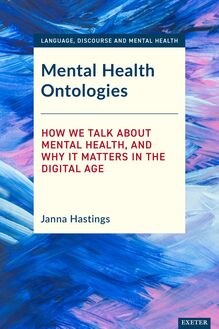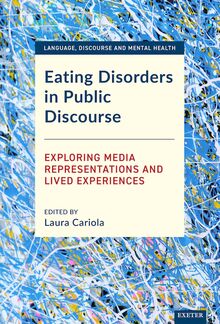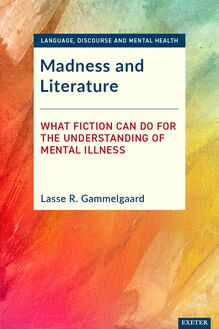Child and Adolescent Migration, Mental Health, and Language , livre ebook
115
pages
English
Ebooks
2024
Vous pourrez modifier la taille du texte de cet ouvrage
Obtenez un accès à la bibliothèque pour le consulter en ligne En savoir plus
Découvre YouScribe en t'inscrivant gratuitement
Découvre YouScribe en t'inscrivant gratuitement
115
pages
English
Ebooks
2024
Vous pourrez modifier la taille du texte de cet ouvrage
Obtenez un accès à la bibliothèque pour le consulter en ligne En savoir plus
Publié par
Date de parution
15 mai 2024
Nombre de lectures
0
EAN13
9781804130407
Langue
English
Poids de l'ouvrage
1 Mo
Child and Adolescent Migration, Mental Health, and Language, focuses on migration and the socio-affective significance of language. It examines how this influences children’s and adolescents’ development, subjectivity, identifications, and identity formations. By taking a thorough approach to the intricacy of migrancy, this timely publication examines the many challenges that young economic migrants, environmental migrants, refugees, irregular migrants, and asylum seekers encounter prior to and following their geographic, sociocultural, and linguistic relocations. While not disregarding the benefits that can stem from international relocations, Carra-Salsberg also addresses contemporary concerns influencing young migrants’ socio-affective experiences.
As part of the book’s discussion on the subjective significance of language, it takes a semiotic, pedagogic, and psychoanalytic approach to study the effects of foreign-language immersions and significant language learning, and how these can add to pre-existing traumas. The developmental importance of language is considered through theory, the analysis of memoirs, and the author’s depiction and understanding of her own experiences between languages. Written for academics, psychologists, psychiatrists, pedagogues, counsellors, human rights advocates, and policy-makers, this book highlights the intricate connections between language, migration, and mental health. The restorative significance of language is also reflected upon in relation to migrants’ natural need to grieve, testify, and find meaning within their past and present sense of self.
Introduction—Transnational Migrations: Addressing New Concerns for an Old Practice
1. Dialogic Encounters: Conceptualizing Effects on Belief Systems, Subjectivities, and Individuals’ Personal and Shared Histories
2. Migration and Trauma: Defining the Problem of Child and Adolescent Transnational Relocations
3. Memory within Language: Our Mother Tongue’s Link to Subjective Development and our Remembered and Seemingly Forgotten Sense of Being, Loving, and Belonging
4. Trauma’s Dimension within and outside Language
5. Bearing Witness to Translingual Realities: A Study of the Significance of First-Person, Cross-Cultural Publications
6. How to Conclude from Here?
Notes
References
Index
Publié par
Date de parution
15 mai 2024
Nombre de lectures
0
EAN13
9781804130407
Langue
English
Poids de l'ouvrage
1 Mo



